On February 28, the North Carolina Court of Appeals ruled that a three-judge panel did not have the authority to revive the two original boards after lawmakers had dissolved them with Senate Bill 4. Gov. Roy Cooper is currently challenging […]
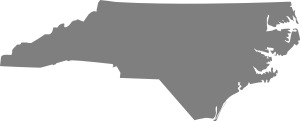 On February 28, the North Carolina Court of Appeals ruled that a three-judge panel did not have the authority to revive the two original boards after lawmakers had dissolved them with Senate Bill 4.
On February 28, the North Carolina Court of Appeals ruled that a three-judge panel did not have the authority to revive the two original boards after lawmakers had dissolved them with Senate Bill 4.
Gov. Roy Cooper is currently challenging Senate Bill 4 on the basis that the General Assembly overstepped its state constitutional authority when it adopted the law establishing an eight-member board to oversee elections and consider ethics complaints and issues.
Last month, the North Carolina Supreme Court blocked Senate Bill 4 from taking effect while the legal challenge against the law is pending. This latest ruling means there is not technically an Ethics Commission or Board of Elections. Gov. Cooper is expected to appeal the ruling to the state Supreme Court, which could reestablish the boards.
February 14, 2017 •
NC Supreme Court Reinstates Block on Elections Board Merger
Monday, the North Carolina Supreme Court issued an order blocking Senate Bill 4 from taking effect while the legal challenge against the law is pending. This order halts the merger to combine the State Board of Elections with the State […]
 Monday, the North Carolina Supreme Court issued an order blocking Senate Bill 4 from taking effect while the legal challenge against the law is pending.
Monday, the North Carolina Supreme Court issued an order blocking Senate Bill 4 from taking effect while the legal challenge against the law is pending.
This order halts the merger to combine the State Board of Elections with the State Ethics Commission.
Gov. Roy Cooper is currently challenging Senate Bill 4 on the basis that the General Assembly overstepped its state constitutional authority when it adopted the law establishing an eight-member board to oversee elections and consider ethics complaints and issues.
February 10, 2017 •
North Carolina Appeals Court Reinstates Law to Merge Ethics and Elections Boards
On Thursday, a ruling from the North Carolina Court of Appeals overturned a lower court order that blocked Senate Bill 4 from taking effect while the legal challenge against the law was pending. This allows the merger to go forward […]
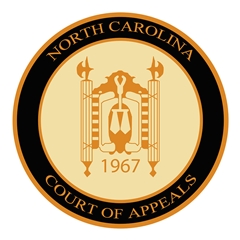 On Thursday, a ruling from the North Carolina Court of Appeals overturned a lower court order that blocked Senate Bill 4 from taking effect while the legal challenge against the law was pending.
On Thursday, a ruling from the North Carolina Court of Appeals overturned a lower court order that blocked Senate Bill 4 from taking effect while the legal challenge against the law was pending.
This allows the merger to go forward to combine the State Board of Elections with the State Ethics Commission.
Gov. Roy Cooper appealed this ruling today to the state Supreme Court.
January 11, 2017 •
Supreme Court Issues Stay on Special Elections in North Carolina
Yesterday, the U.S Supreme Court issued a temporary stay on a lower court order to hold special elections in November 2017 for North Carolina General Assembly seats in unconstitutionally gerrymandered districts. The temporary stay of the lower court’s decision will […]
 Yesterday, the U.S Supreme Court issued a temporary stay on a lower court order to hold special elections in November 2017 for North Carolina General Assembly seats in unconstitutionally gerrymandered districts.
Yesterday, the U.S Supreme Court issued a temporary stay on a lower court order to hold special elections in November 2017 for North Carolina General Assembly seats in unconstitutionally gerrymandered districts.
The temporary stay of the lower court’s decision will remain in place until the justices decide whether to consider a previously filed appeal from state officials. If the Supreme Court hears the case and overturns the ruling, the special elections would be canceled and current districts restored for the 2018 election.
January 9, 2017 •
North Carolina Panel Postpones Board of Elections Disbandment
Last week, a panel of three judges granted Gov. Roy Cooper’s request for the state to temporarily refrain from overhauling the elections board until his active lawsuit is resolved. Cooper proposed the constitutional separation of powers are overlooked in a […]
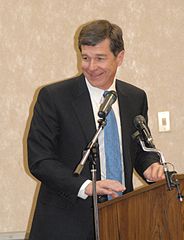 Last week, a panel of three judges granted Gov. Roy Cooper’s request for the state to temporarily refrain from overhauling the elections board until his active lawsuit is resolved.
Last week, a panel of three judges granted Gov. Roy Cooper’s request for the state to temporarily refrain from overhauling the elections board until his active lawsuit is resolved.
Cooper proposed the constitutional separation of powers are overlooked in a new General Assembly law.
If Cooper fails to win the suit, and the law is not overturned, the five-member state Board of Elections will be reorganized into a team of eight under the state Ethics Commission.
January 3, 2017 •
North Carolina Challenges Redistricting Ruling
On Friday, North Carolina filed an emergency motion with the U.S. Supreme Court to issue a stay on the federal appeals court ruling that North Carolina must hold special elections in November 2017 for General Assembly seats in unconstitutionally gerrymandered […]
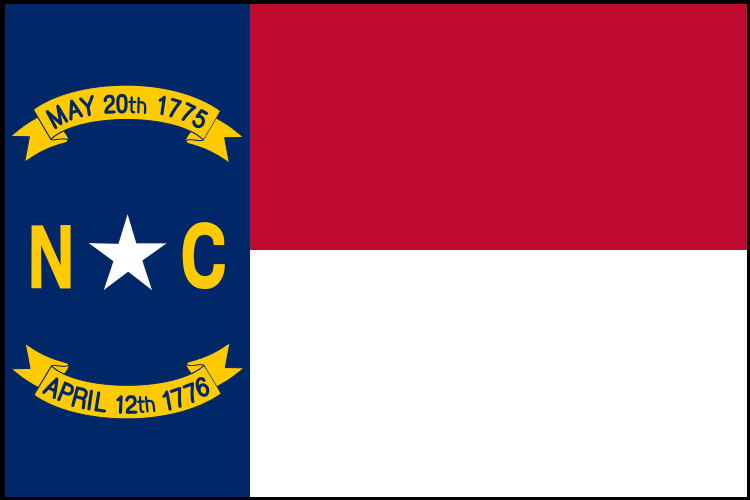 On Friday, North Carolina filed an emergency motion with the U.S. Supreme Court to issue a stay on the federal appeals court ruling that North Carolina must hold special elections in November 2017 for General Assembly seats in unconstitutionally gerrymandered districts.
On Friday, North Carolina filed an emergency motion with the U.S. Supreme Court to issue a stay on the federal appeals court ruling that North Carolina must hold special elections in November 2017 for General Assembly seats in unconstitutionally gerrymandered districts.
The legislature would need to redraw districts by mid-March to comply with the ruling. Supreme Court Chief Justice John Roberts set the deadline for a response in the case for January 9, 2017.
December 30, 2016 •
Judge Puts North Carolina’s Senate Bill 4 on Hold
Today, Governor-elect Roy Cooper filed a legal challenge against Senate Bill 4. Wake County Superior Court Judge Donald Stephens agreed to block the law from taking effect while the lawsuit is pending. Senate Bill 4 would have taken effect January […]
 Today, Governor-elect Roy Cooper filed a legal challenge against Senate Bill 4. Wake County Superior Court Judge Donald Stephens agreed to block the law from taking effect while the lawsuit is pending.
Today, Governor-elect Roy Cooper filed a legal challenge against Senate Bill 4. Wake County Superior Court Judge Donald Stephens agreed to block the law from taking effect while the lawsuit is pending.
Senate Bill 4 would have taken effect January 1, 2017, to merge the State Board of Elections with the State Ethics Commission and create a new eight-member board split evenly between Republicans and Democrats. The bill was passed by a Republican dominated legislature in an attempt to limit the power of the executive branch before newly elected Democrats take power.
December 22, 2016 •
North Carolina Special Session Adjourns Without Repeal of ‘Bathroom Bill’
North Carolina lawmakers adjourned a special session yesterday without taking any action to repeal House Bill 2. The special session was called by Gov. Pat McCrory specifically for the purpose of repealing the bill. House Bill 2 restricts which restrooms […]
 North Carolina lawmakers adjourned a special session yesterday without taking any action to repeal House Bill 2. The special session was called by Gov. Pat McCrory specifically for the purpose of repealing the bill.
North Carolina lawmakers adjourned a special session yesterday without taking any action to repeal House Bill 2. The special session was called by Gov. Pat McCrory specifically for the purpose of repealing the bill.
House Bill 2 restricts which restrooms transgender people can use and blocks local governments from enacting nondiscrimination ordinances regarding the use of public bathrooms. The legislation has caused boycotts resulting in the loss of millions of dollars from cancelled conventions, concerts and sporting events.
December 20, 2016 •
Another Special Session Called in North Carolina
North Carolina lawmakers will meet Wednesday for their third special session this month. Gov. Pat McCrory announced he will call a special session Wednesday to vote on repealing House Bill 2. House Bill 2 restricts which restrooms transgender people can […]
 North Carolina lawmakers will meet Wednesday for their third special session this month. Gov. Pat McCrory announced he will call a special session Wednesday to vote on repealing House Bill 2.
North Carolina lawmakers will meet Wednesday for their third special session this month. Gov. Pat McCrory announced he will call a special session Wednesday to vote on repealing House Bill 2.
House Bill 2 restricts which restrooms transgender people can use and blocks local governments from enacting nondiscrimination ordinances regarding the use of public bathrooms.
December 19, 2016 •
North Carolina Bill to Merge Ethics and Elections Boards Becomes Law
On Friday, December 16, Gov. Pat McCrory signed Senate Bill 4 into law. Senate Bill 4 merges the State Board of Elections with the State Ethics Commission and creates a new eight-member board split evenly between Republicans and Democrats. The […]
 On Friday, December 16, Gov. Pat McCrory signed Senate Bill 4 into law. Senate Bill 4 merges the State Board of Elections with the State Ethics Commission and creates a new eight-member board split evenly between Republicans and Democrats.
On Friday, December 16, Gov. Pat McCrory signed Senate Bill 4 into law. Senate Bill 4 merges the State Board of Elections with the State Ethics Commission and creates a new eight-member board split evenly between Republicans and Democrats.
The bill was introduced by Republicans in an attempt to limit the power of the executive branch before newly elected Democrats take power. Governor-elect Roy Cooper has stated that he plans to challenge the law in court as unconstitutional.
December 16, 2016 •
North Carolina Bill to Merge Ethics and Elections Boards Passes Senate
Yesterday, Senate Bill 4 passed in the North Carolina Senate with a 30-16 vote. Senate Bill 4 seeks to merge the State Board of Elections with the State Ethics Commission and create a new eight-member board split evenly between Republicans […]
 Yesterday, Senate Bill 4 passed in the North Carolina Senate with a 30-16 vote.
Yesterday, Senate Bill 4 passed in the North Carolina Senate with a 30-16 vote.
Senate Bill 4 seeks to merge the State Board of Elections with the State Ethics Commission and create a new eight-member board split evenly between Republicans and Democrats.
The bill is now headed to the House for consideration
December 15, 2016 •
Surprise Special Session Called in North Carolina
Minutes after legislators finished work on a hurricane relief package in a two-day special session set by Gov. Pat McCrory, Republicans called a second special session Wednesday in an attempt to pass legislation to limit newly elected Democrats. Most of […]
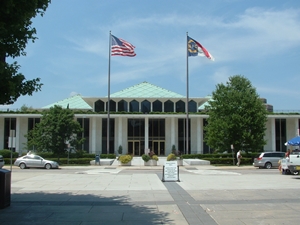 Minutes after legislators finished work on a hurricane relief package in a two-day special session set by Gov. Pat McCrory, Republicans called a second special session Wednesday in an attempt to pass legislation to limit newly elected Democrats.
Minutes after legislators finished work on a hurricane relief package in a two-day special session set by Gov. Pat McCrory, Republicans called a second special session Wednesday in an attempt to pass legislation to limit newly elected Democrats.
Most of the 21 bills introduced seek to limit the power of the executive branch. Senate Bill 4 would merge the State Board of Elections with the State Ethics Commission and create a new eight-member board split evenly between Republicans and Democrats. Current law gives a majority of the state elections board’s five members to the governor’s party.
December 6, 2016 •
Tuesday Lobbying and Campaign Finance News Update
Campaign Finance “FEC Asks Congress for Authority to Battle Shady PACs” by Kenneth P. Doyle for Bloomberg.com New York: “Council Bill Could Make Campaign Fraud Easier in New York, Critics Say” by William Neuman for The New York Times Wyoming: […]
 Campaign Finance
Campaign Finance
“FEC Asks Congress for Authority to Battle Shady PACs” by Kenneth P. Doyle for Bloomberg.com
New York: “Council Bill Could Make Campaign Fraud Easier in New York, Critics Say” by William Neuman for The New York Times
Wyoming: “Wyo. Campaign Finance Law Often Goes Unenforced” by Matt Murphy (Wyoming Tribune Eagle) for Wyoming Business Report
Ethics
“Business Since Birth: Trump’s children and the tangle that awaits” by Matt Flegenheimer, Rachel Abrams, Barry Meier, and Hiroko Tabuchi for The New York Times
“Trump Adviser Has Pushed Clinton Conspiracy Theories” by Mattew Rosenberg for The New York Times
Florida: “Turning Code Violations into Payoffs, the Opa-locka Way” by Michael Sallah and Jay Weaver for Miami Herald
Michigan: “Politician Can Evade Questions, But Not Indictment in Rizzo Scandal” by Tresa Baldas for Detroit Free Press
New Mexico: “Ethics-Related Legislation Heads to Session” by Deborah Baker for Albuquerque Journal
Elections
North Carolina: “North Carolina Gov. Pat McCrory (R) Concedes Closely Contested Governor’s Race” by Amber Phillips for The Washington Post
December 5, 2016 •
Gov. McCrory Concedes North Carolina Governor’s Race
Nearly a month after Election Day, Gov. Pat McCrory conceded the governor’s race today in a video message posted to YouTube, making Democrat Roy Cooper the next governor of North Carolina. Following weeks of recounts and challenges alleging voter fraud, […]
 Nearly a month after Election Day, Gov. Pat McCrory conceded the governor’s race today in a video message posted to YouTube, making Democrat Roy Cooper the next governor of North Carolina.
Nearly a month after Election Day, Gov. Pat McCrory conceded the governor’s race today in a video message posted to YouTube, making Democrat Roy Cooper the next governor of North Carolina.
Following weeks of recounts and challenges alleging voter fraud, McCrory’s concession was made as early results from Durham County’s recount showed no change from initial results.
State and Federal Communications, Inc. provides research and consulting services for government relations professionals on lobbying laws, procurement lobbying laws, political contribution laws in the United States and Canada. Learn more by visiting stateandfed.com.

